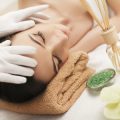Understanding Ageing Concerns Unique to Indian Skin
When we talk about anti-ageing facial treatments for Indian women, it’s important to first recognise that the skin ageing process in India is quite different from what women experience in other parts of the world. The higher melanin content in Indian skin means that there is some natural protection against sun damage, which often delays the appearance of fine lines and wrinkles. However, this same melanin can also make Indian skin more prone to pigmentation issues, dark spots, and uneven tone as ageing sets in.
Additionally, environmental factors such as high levels of pollution in cities like Delhi, Mumbai, and Bangalore accelerate premature skin ageing. Dust, smoke, and harmful particulates can clog pores and lead to dullness or a loss of youthful radiance. Furthermore, the typically hot and humid Indian climate encourages excess oil production, sometimes causing adult acne and enlarged pores alongside signs of ageing.
Lifestyle habits are another crucial aspect. Many Indian women juggle demanding schedules balancing work, family responsibilities, and social obligations. Irregular sleep patterns, stress, and insufficient hydration can all contribute to accelerated skin ageing. It’s also common for diets to be high in spices and carbohydrates, which may impact collagen production and overall skin health.
Given these unique challenges—melanin-driven pigmentation concerns, urban environmental stressors, and lifestyle factors—its essential for Indian women to choose facial treatments that specifically address their needs rather than relying on generic anti-ageing solutions. This forms the foundation for expert recommendations tailored to Indian skin types.
2. Popular In-Clinic Anti-Ageing Treatments in India
Indian women today are exploring advanced in-clinic facial treatments to address signs of ageing, but safety and results for Indian skin types are top priorities. Here, experts share insights on trending anti-ageing treatments available across major Indian cities.
Chemical Peels: Tailored for Indian Skin
Chemical peels remain one of the most sought-after procedures, especially for treating pigmentation and uneven skin tone—a common concern among Indian women due to higher melanin levels. Dermatologists recommend opting for milder peels like glycolic or lactic acid, as these are less likely to cause post-inflammatory hyperpigmentation (PIH). Always ensure the treatment is administered by a certified professional familiar with Indian skin sensitivities.
Laser Therapy: Precision with Caution
Lasers such as Q-switched Nd:YAG and fractional CO2 are gaining traction for reducing fine lines, age spots, and boosting collagen. However, experts emphasise choosing devices that can be calibrated for darker skin tones to prevent burns or pigmentation changes. A patch test prior to full-face treatment is highly recommended by dermatologists in Mumbai and Delhi.
Hydra Facials: Gentle Yet Effective
Hydra facials have become a favourite among urban Indian women seeking hydration and instant radiance. This non-invasive technique uses a vortex fusion tip to cleanse, exfoliate, and infuse the skin with serums. It’s ideal for sensitive or combination skin types prevalent in India, offering minimal downtime.
Comparison Table: Popular Anti-Ageing Facial Treatments in India
| Treatment | Main Benefit | Recommended For | Downtime | Expert Tip |
|---|---|---|---|---|
| Chemical Peel | Reduces pigmentation & evens tone | Dull, pigmented skin | 1-3 days mild peeling | Opt for milder acids; avoid strong peels without consultation |
| Laser Therapy | Smooths wrinkles & age spots | Mature skin, acne scars | 2-5 days redness/swelling | Ensure laser is suitable for your skin type; ask for a patch test |
| Hydra Facial | Hydrates & rejuvenates instantly | Sensitive/combination skin, regular upkeep | No significant downtime | Great pre-event; safe for all complexions when done by pros |
Key Takeaway:
Selecting the right anti-ageing treatment depends on your skin type and concerns. Always consult an experienced dermatologist who understands the unique needs of Indian skin before starting any procedure. Safety first—don’t compromise for quick results.

3. Natural and Ayurvedic Remedies for Youthful Skin
When it comes to anti-ageing facial treatments, Indian women have the unique advantage of drawing from a rich heritage of natural and Ayurvedic remedies. For centuries, households across India have relied on time-tested ingredients that not only enhance beauty but also address the signs of ageing in a gentle, holistic way. Experts agree that incorporating these traditional elements into your skincare routine can make a real difference, especially considering the Indian climate and skin types.
Turmeric: The Golden Elixir
Turmeric (haldi) is perhaps the most celebrated ingredient in Indian skincare. Known for its powerful antioxidant and anti-inflammatory properties, turmeric helps combat free radicals that accelerate skin ageing. A simple paste made with turmeric, chickpea flour (besan), and raw milk can gently exfoliate dead skin cells and reveal a brighter complexion. Experts recommend using this mask once or twice a week for best results.
Sandalwood: Soothing & Rejuvenating
Sandalwood (chandan) is another staple in Indian beauty rituals. Its cooling effect soothes irritated skin, while its natural oils help maintain moisture balance. Mixing sandalwood powder with rose water creates a calming face pack that reduces fine lines and refreshes dull skin—a favourite among women who want to retain youthful radiance without harsh chemicals.
Saffron: Luxurious Glow Booster
Saffron (kesar), often reserved for special occasions, is prized for its ability to brighten and even out the skin tone. Steeping saffron strands in milk overnight and applying the infusion as a facial treatment can boost collagen production and fade age spots over time. According to dermatology experts, regular use of saffron-based packs can give the skin a luminous glow reminiscent of bridal beauty rituals.
Easy Home Remedies Rooted in Tradition
Aside from these hero ingredients, other home remedies like honey masks, aloe vera gel, and coconut oil massages continue to be passed down through generations. These simple yet effective methods are valued for their accessibility and compatibility with Indian skin sensitivities.
Expert Tip:
For optimal results, experts suggest blending these natural remedies with modern sun protection habits and maintaining a consistent skincare routine tailored to your unique needs. Embracing India’s centuries-old wisdom ensures that anti-ageing is not just about looking young but feeling confident in your own beautiful skin.
4. Daily Skincare and Sun Protection Tips for Indian Women
Dermatologists’ Recommendations for an Effective Routine
Building a daily skincare routine that addresses both anti-ageing and the unique challenges of Indian skin is essential. Dermatologists in India emphasize the importance of gentle cleansing, consistent moisturisation, and targeted treatments. Begin with a sulphate-free cleanser to remove impurities without stripping natural oils. Use a lightweight, non-comedogenic moisturiser—especially important for Indian women prone to humidity-induced breakouts or dryness from air pollution. Incorporate antioxidants like Vitamin C serum in the morning to combat oxidative stress from sun and pollution, followed by a retinol-based product at night if your skin tolerates it.
Choosing the Right Sunscreen for Indian Skin Tones
Sun protection is non-negotiable in India’s harsh climate. Experts recommend broad-spectrum sunscreens with SPF 30 or higher, ideally PA+++, to shield against both UVA and UVB rays. Look for formulas that are sweat-resistant and leave minimal white cast—a common concern for deeper Indian skin tones. Gel-based or matte-finish sunscreens are preferred for oily or combination skin types commonly found among Indian women.
Sunscreen Types Comparison
| Type | Best For | Key Benefits |
|---|---|---|
| Cream-based | Dry/Normal Skin | Hydrates & protects; suitable for cooler regions |
| Gel-based | Oily/Acne-prone Skin | Lightweight, non-greasy; ideal for humid climates |
| Tinted Sunscreen | All Skin Types | Evens skin tone; reduces white cast on deeper skin shades |
Protecting Skin from Indian Sun and Pollution
The combination of intense sunlight and high pollution levels in Indian cities accelerates ageing signs like pigmentation, dullness, and fine lines. Dermatologists recommend reapplying sunscreen every 2-3 hours when outdoors, wearing wide-brimmed hats or scarves, and opting for UV-blocking sunglasses. At the end of the day, double cleansing helps remove sunscreen and environmental toxins effectively. Weekly use of antioxidant-rich masks can further protect against free radical damage caused by urban pollution.
Pro-Tip: Adopt Simple Habits for Lasting Results
Consistency is key—stick to your routine, avoid skipping sunscreen even indoors (as UVA rays penetrate windows), and consult your dermatologist before introducing new actives. With these expert-backed tips tailored for Indian women, you can effectively defend your skin against premature ageing while embracing local climate realities.
5. Lifestyle and Diet Recommendations from Skin Experts
When it comes to anti-ageing facial treatments for Indian women, experts agree that your lifestyle choices and dietary habits play a crucial role in achieving long-lasting results. A well-rounded approach, combining professional treatments with mindful daily routines, ensures your skin stays youthful and radiant.
Traditional Indian Diet: Friend or Foe?
Skin experts often praise the Indian diet for its inclusion of antioxidants, spices like turmeric, and healthy fats found in nuts and seeds. However, they also caution against excessive consumption of deep-fried snacks, sweets high in refined sugar, and overuse of dairy products—all of which can accelerate ageing. Instead, focus on seasonal fruits such as papaya, guava, and pomegranate, which are rich in vitamins and help combat free radicals.
Hydration: The Unsung Hero
Hydration is especially important in India’s diverse climate. Experts recommend drinking at least 8-10 glasses of water daily. Infusing your water with tulsi (holy basil), mint, or lemon not only adds flavour but also boosts detoxification. Herbal teas like green tea or ashwagandha tea are also excellent choices for supporting skin health.
Stress Management: The Ayurvedic Way
Chronic stress can undo the benefits of even the best facial treatments. Incorporate yoga or pranayama (breathing exercises) into your routine—these time-honoured practices help manage stress levels while improving circulation for glowing skin. Experts also suggest regular head massages with coconut or almond oil to promote relaxation and enhance blood flow to the face.
Balanced Living for Lasting Results
Ultimately, the most effective anti-ageing strategy combines modern skincare with traditional wisdom. By making mindful dietary choices, staying hydrated, and managing stress through holistic methods rooted in Indian culture, you can maximise the benefits of your facial treatments and maintain youthful skin for years to come.
6. Common Mistakes to Avoid in Anti-Ageing Skincare
When it comes to anti-ageing facial treatments, Indian women often fall prey to some common myths and mistakes that can reduce the effectiveness of their skincare routine or even cause harm. Experts warn against following every social media trend without considering your unique skin type, lifestyle, and the Indian climate. For instance, using harsh exfoliators or excessive chemical peels may promise quick results but often end up damaging the skin barrier, especially for those with melanin-rich Indian skin which is more prone to pigmentation issues. Another frequent error is neglecting sunscreen; many assume it’s only necessary in Western countries or during summer. However, experts strongly emphasise that broad-spectrum SPF is essential for Indian women year-round due to high UV exposure and pollution levels across most cities.
Many also skip patch testing new products, leading to allergic reactions or breakouts. Relying solely on home remedies—like lemon juice or undiluted essential oils—without scientific backing is another mistake, as these can irritate sensitive skin. Experts advise consulting certified dermatologists before trying new treatments, rather than depending on viral trends or advice from non-professionals. Lastly, overuse of fairness creams or products promising “instant glow” can strip away natural oils and disrupt the skin’s balance, making ageing signs more noticeable in the long run.
To sum up, Indian women should focus on a holistic approach—prioritising gentle cleansing, consistent sun protection, scientifically formulated serums (like retinol or vitamin C), and professional guidance over aggressive DIY hacks or unproven fads. Avoiding these common pitfalls will help maintain youthful, radiant skin while respecting the unique needs of Indian complexions.


